On Saturday evening the Synod of Bishops on the Family came to a close when Synod Fathers voted paragraph by paragraph on the final text. At the end of the vote the text was presented to the Holy Father. All 94 points received the required two-thirds majority vote.
On Saturday evening the Synod of Bishops on the Family came to a close when Synod Fathers voted paragraph by paragraph on the final text. At the end of the vote the text was presented to the Holy Father. All 94 points received the required two-thirds majority vote.
Dear Beatitudes, Eminences and Excellencies, Dear Brothers and Sisters,
I would like first of all to thank the Lord, who has guided our synodal process in these years by his Holy Spirit, whose support is never lacking to the Church.
My heartfelt thanks go to Cardinal Lorenzo Baldisseri, Secretary General of the Synod, Bishop Fabio Fabene, its Under-Secretary, and, together with them, the Relator, Cardinal Peter Erdő, and the Special Secretary, Archbishop Bruno Forte, the Delegate Presidents, the writers, consultors and translators, and all those who have worked tirelessly and with total dedication to the Church: My deepest thanks!
I likewise thank all of you, dear Synod Fathers, Fraternal Delegates, Auditors and Assessors, parish priests and families, for your active and fruitful participation.
And I thank all those unnamed men and women who contributed generously to the labours of this Synod by quietly working behind the scenes.
Be assured of my prayers, that the Lord will reward all of you with his abundant gifts of grace!
As I followed the labours of the Synod, I asked myself: What will it mean for the Church to conclude this Synod devoted to the family?
Certainly, the Synod was not about settling all the issues having to do with the family, but rather attempting to see them in the light of the Gospel and the Church’s tradition and two-thousand-year history, bringing the joy of hope without falling into a facile repetition of what is obvious or has already been said.
Surely it was not about finding exhaustive solutions for all the difficulties and uncertainties which challenge and threaten the family, but rather about seeing these difficulties and uncertainties in the light of the Faith, carefully studying them and confronting them fearlessly, without burying our heads in the sand.
It was about urging everyone to appreciate the importance of the institution of the family and of marriage between a man and a woman, based on unity and indissolubility, and valuing it as the fundamental basis of society and human life.
It was about listening to and making heard the voices of the families and the Church’s pastors, who came to Rome bearing on their shoulders the burdens and the hopes, the riches and the challenges of families throughout the world.
It was about showing the vitality of the Catholic Church, which is not afraid to stir dulled consciences or to soil her hands with lively and frank discussions about the family.
It was about trying to view and interpret realities, today’s realities, through God’s eyes, so as to kindle the flame of faith and enlighten people’s hearts in times marked by discouragement, social, economic and moral crisis, and growing pessimism.
It was about bearing witness to everyone that, for the Church, the Gospel continues to be a vital source of eternal newness, against all those who would “indoctrinate” it in dead stones to be hurled at others.
It was also about laying bare the closed hearts which frequently hide even behind the Church’s teachings or good intentions, in order to sit in the chair of Moses and judge, sometimes with superiority and superficiality, difficult cases and wounded families.
It was about making clear that the Church is a Church of the poor in spirit and of sinners seeking forgiveness, not simply of the righteous and the holy, but rather of those who are righteous and holy precisely when they feel themselves poor sinners.
It was about trying to open up broader horizons, rising above conspiracy theories and blinkered viewpoints, so as to defend and spread the freedom of the children of God, and to transmit the beauty of Christian Newness, at times encrusted in a language which is archaic or simply incomprehensible.
In the course of this Synod, the different opinions which were freely expressed – and at times, unfortunately, not in entirely well-meaning ways – certainly led to a rich and lively dialogue; they offered a vivid image of a Church which does not simply “rubberstamp”, but draws from the sources of her faith living waters to refresh parched hearts. (1)
And – apart from dogmatic questions clearly defined by the Church’s Magisterium – we have also seen that what seems normal for a bishop on one continent, is considered strange and almost scandalous for a bishop from another; what is considered a violation of a right in one society is an evident and inviolable rule in another; what for some is freedom of conscience is for others simply confusion. Cultures are in fact quite diverse, and each general principle needs to be inculturated, if it is to be respected and applied. (2) The 1985 Synod, which celebrated the twentieth anniversary of the conclusion of the Second Vatican Council, spoke of inculturation as “the intimate transformation of authentic cultural values through their integration in Christianity, and the taking root of Christianity in the various human cultures”.(3) Inculturation does not weaken true values, but demonstrates their true strength and authenticity, since they adapt without changing; indeed they quietly and gradually transform the different cultures. (4)
We have seen, also by the richness of our diversity, that the same challenge is ever before us: that of proclaiming the Gospel to the men and women of today, and defending the family from all ideological and individualistic assaults.
And without ever falling into the danger of relativism or of demonizing others, we sought to embrace, fully and courageously, the goodness and mercy of God who transcends our every human reckoning and desires only that “all be saved” (cf. 1 Tm 2:4). In this way we wished to experience this Synod in the context of the Extraordinary Year of Mercy which the Church is called to celebrated.
Vatican Radio


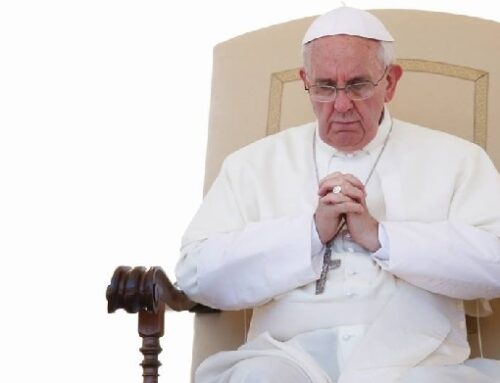
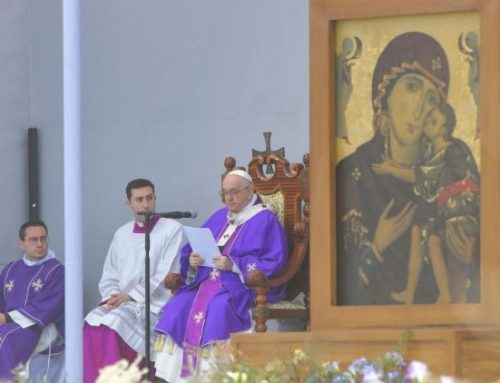
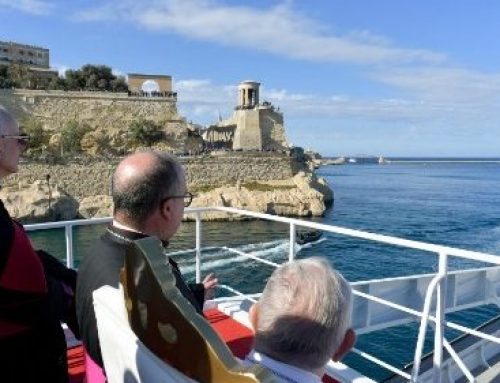
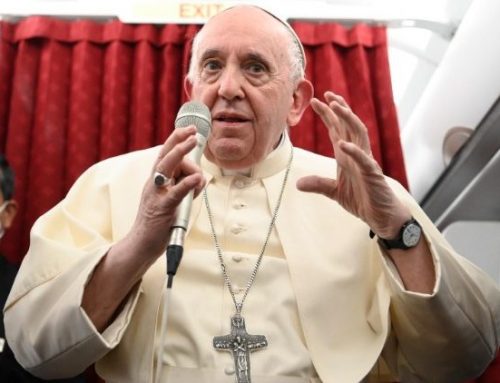
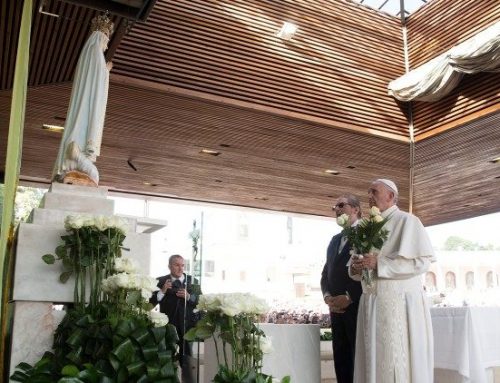
Leave A Comment
You must be logged in to post a comment.